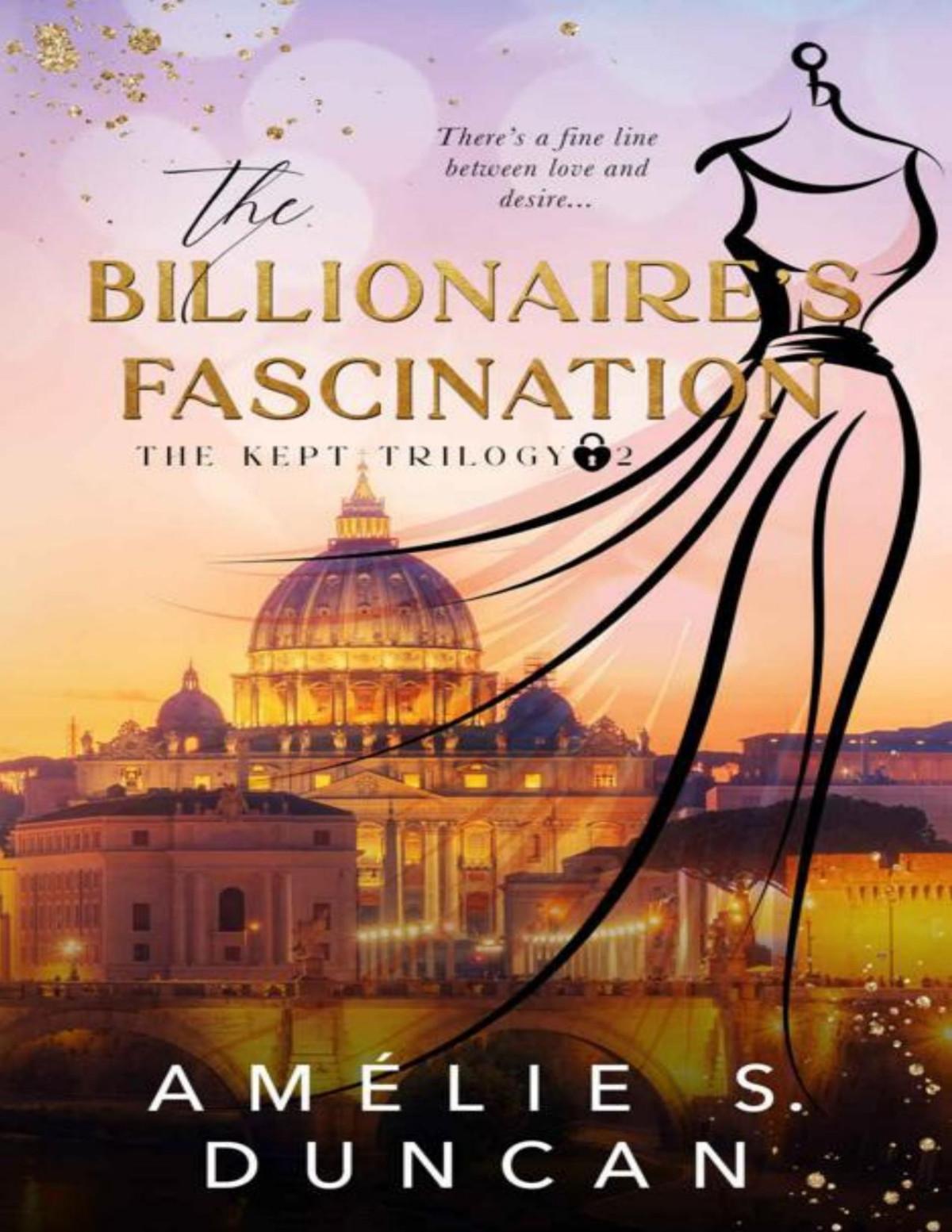Other documents randomly have different content
mostly young men, relations or friends of Doña Sol's, who saluted the torero with courteous amiability, pleased that he should be of the party. At last the Marquis de Moraima came out of the house, and mounted his horse immediately.
"My niece will be down directly. Women, you know! ... they are never ready."
He said this with the sententious gravity with which he always spoke, as if his words were oracles. He was a tall spare man, with large white whiskers, but his eyes and mouth preserved an almost childlike ingenuousness. Courteous and measured in his language, quick in his gestures, seldom smiling, he was quite a great nobleman of the olden days: Clad almost always in riding dress he hated town life, bored by the social obligations that his rank imposed on him when he was in Seville, longing to range the country with his farmers and herdsmen whom he treated familiarly as comrades. He had almost forgotten how to write from want of practice, but when anyone spoke to him of fighting bulls, of the rearing of horses and bulls, or of agricultural work, his eyes sparkled with determination, and you recognised at once the great connoisseur.
Some clouds passed over the sun, and the golden light faded from the white walls of the street; some looked up at the sky, to the narrow strip of blue visible between the two lines of roofs.
"Do not be uneasy," said the Marquis gravely.... "As I came out of the house I saw the wind blowing a piece of paper in a direction I know. It will not rain."
Every one seemed reassured. It could not rain, as the Marquis had said it would not. He knew the weather just as well as an old shepherd, and there was no danger of his being mistaken.
Then he came up to Gallardo.
"This year I shall provide you with magnificent corridas. What bulls! We shall see if you will kill them like good Christians. Last year, you
know, I was not at all pleased, the poor brutes deserved better."
Doña Sol now appeared, raising with one hand her dark riding habit, beneath which appeared her high grey leather riding boots. She wore a man's shirt with a red cravat, a jacket and waistcoat of violet velvet, and her small velvet Andalusian hat rested gracefully on her curling hair.
She mounted lightly, taking her garrocha from a servant. While she saluted her friends, apologizing for having kept them waiting, her eyes were watching Gallardo. Don José pricked on his horse to make the presentation, but Doña Sol was beforehand with him, going up to the torero.
Gallardo felt perturbed by the lady's presence. What a woman! What would she say to him?...
He saw that she held out a delicate, scented hand, and in his bewilderment he only knew that he seized and pressed it in the strong grasp used to overthrowing bulls. But the hand, so white and pink, was not crushed in the rough involuntary grip, which would have made another cry out with pain, but after a strong clasp it disengaged itself easily.
"I thank you much for having come. Delighted to know you."
And Gallardo, in his flurry, feeling that he must answer something, stammered as if he were speaking to an amateur:
"Thanks; and the family, quite well?"
A little ripple of laughter from Doña Sol was lost in the clatter of the hoofs, in the noise of their first start. The lady put her horse to a trot, and the cavalcade of riders followed her, Gallardo, unable to get over his stupefaction, bringing up the rear, feeling dimly that he had made a fool of himself.
They galloped through the outskirts of Seville alongside the river leaving the Torre Del Oro[77] behind them and then on through the
shady gardens strewn with yellow sand, till they reached a road bordered on either side by small taverns and eating-houses.
When they arrived at Tablada, they saw on the green plain a large concourse of people and carriages drawn up close to the palisades which separated the meadow from the animals' enclosure.
The broad stream of the Guadalquivir rolled along the edge of the pasture; on the opposite side rose the hill of San Juan de Aznalfarache, crowned by its ruined castle, and many white country houses peeped out from among the silver grey of the olive trees. On the opposite side of the wide horizon, on which a few woolly clouds were floating, lay Seville, the line of its houses dominated by the imposing mass of the Cathedral, and the marvellous Giralda, dyed a tender pink in the evening light.
The riders advanced with no little trouble among the moving crowd. The curiosity inspired by Doña Sol's originalities had attracted all the ladies of Seville. Her friends saluted her as she passed their carriages, thinking she looked very beautiful in her manly dress. Her relations, the Marquis's daughters, some unmarried, others accompanied by their husbands, recommended prudence.
"For God's sake, Sol! do not risk anything"....
The "derribadores" entered into the enclosure, being greeted as they went through the palings by the shouts of the populace, who had come to see the sport.
The horses, seeing their enemies and sniffing them from afar, began to prance, neighing and kicking beneath the firm hands of their riders.
The bulls were in the centre in a group, some were quietly grazing, while others lay sleepily ruminating on the grass which was a little rusted by the winter; others, wilder, trotted towards the river, the old oxen, the prudent "cabestros"[78] immediately starting in pursuit, the big bells round their necks ringing, while the cowherds assisted
them in collecting the stragglers by slinging stones which struck the tips of the fugitives' horns.
The riders remained a long time motionless, holding a council under the impatient eyes of the crowd who were longing for something exciting.
The first to ride out was the Marquis accompanied by one of his friends; the two galloped towards the group of bulls, and when within a short distance stopped their horses, standing up in their stirrups, waving their "garrochas" and shouting loudly to frighten them. A black bull with powerful thighs detached himself from the rest, trotting to the further end of the enclosure.
The Marquis had every right to be proud of his herd, composed entirely of fine animals, carefully selected from judicious crossing. They were not animals destined only for the production of meat, with rough and dirty coats, big hoofs, hanging heads, and large and ill-placed horns. They were animals of nervous vivacity, strong and robust, making the ground shake as they went along raising clouds of dust under their hoofs. Their coats were fine and shining like wellgroomed horses, their eyes fiery, the neck broad and proudly carried, their legs short, their tails long and fine, their horns well shaped, sharp and polished as if by hand, and their hoofs short, small and round, but hard enough to cut the grass like a steel.
The two riders galloped after the animal, attacking him from either side, barring his way as he tried to make for the river, till the Marquis, spurring his horse, gained on him, and, nearing the bull with his garrocha in front of him, drove the iron on to his croup, the combined impetus of the horse and the rider's arm causing him to lose his balance, and roll over on the ground belly upwards, his horns stuck in the ground and his four legs in the air.
The rapidity and ease with which the breeder had accomplished this feat, raised shouts of delight from the other side of the paling. Olé for the old men!... No one understood bulls like the Marquis. He
managed them as if they were his own children, tending them from the day they were born, till the day they entered the Plazas to die like heroes worthy of a better fate.
Immediately other riders wished to go out, and gain the applause of the crowd, but the Marquis stopped them, giving the preference to his niece. If she wished to accomplish a "derribo" she had better go out at once, before the herd got infuriated with the constant attacks.
Doña Sol spurred her horse, which did not cease rearing, frightened by the bulls. The Marquis wished to accompany her, but she refused his escort. No, she preferred having Gallardo, who was a torero. Where was Gallardo? The matador, still ashamed of his awkwardness, rode up to the lady's side in silence.
The two galloped towards the herd, Doña Sol's horse reared up frequently, refusing to go on, but the strength of the rider forced him to advance; Gallardo waved his garrocha, giving shouts that were really bellowings, just as he did in the Plazas when he wished to excite the animal to attack him.
It was not difficult to make one animal come out from the rest; a huge white bull with red spots, an enormous neck and hanging brisket, with horns of the finest point, soon detached himself. He trotted to the further end of the enclosure as if he had there his "querencia,"[79] which irresistibly attracted him; Doña Sol galloped after him, followed by the espada.
"Take care, Señora!" shouted Gallardo. "This is an old and malicious bull, he is drawing you on ... take care he does not turn short."
And so it was. When Doña Sol prepared to make the same stroke as her uncle, turning her horse obliquely to the bull so as to plant the garrocha well on his tail and overthrow him, the brute suddenly turned as if realizing his danger, planting himself menacingly in front of his attackers. The horse rushed in front of the bull, Doña Sol being unable to stop him from the impetus of his wild career, and the bull pursued, the chaser becoming the chased.
The lady had no thought of flight. Thousands of people were watching her from afar, she dreaded the laughter of her friends and the pity of the men, and succeeded at last in checking her horse, and fronting the bull. She held her garrocha under her arm like a picador, and drove it into the bull's neck as it rushed forward bellowing with lowered head. Its enormous poll was covered with a stream of blood, but it rushed on with an overwhelming impetus, not seeming to care for the wound, till it drove its horns under the horse's belly, shaking it, and lifting it off the ground.
The rider was thrown out of her saddle, while a wild cry of horror went up from the palisades; the horse, freed from the horns, rushed on madly, its belly stained with blood, the girths broken and the saddle flapping on its loins.
The bull turned to follow it, but at the same moment something nearer attracted its attention. It was Doña Sol who, instead of remaining motionless on the grass, stood up, picking up her garrocha, and putting it bravely in rest under her arm to confront the brute afresh. It was a mad display of courage, but she thought of those who were watching her; a challenge to death certainly, but far better than compounding with fear and incurring ridicule.
No one shouted from the palisade. The crowd were motionless in terrified silence. The groups of cavaliers were approaching at a mad gallop, but their help would come too late, the bull was already pawing the ground with its forefeet, and lowering his head, to attack that slight figure threatening him with her lance. One simple blow of those horns and all would be over. But at that instant a ferocious bellowing drew the bull's attention and something red passed before his eyes like a flame of fire.
It was Gallardo, who had thrown himself off his horse, dropping his lance, to seize the overcoat strapped on to his saddle bow.
"Eeee! Entra!"[80].
And the bull attacked, running after the red lining of the jacket, attracted by this adversary so worthy of him, turning his hind quarters to the figure in the black riding skirt and violet jacket, who still stood stupefied by the danger, with her lance under her arm.
"Do not be afraid, Doña Sol, he is mine," said the torero, pale with emotion, but smiling, sure of his dexterity.
With no other defence but his jacket, he baited the brute, drawing it away from the lady, and avoiding its furious attacks by graceful bendings.
The crowd, forgetting their previous fright, began to applaud tremendously. What a joy! To have come to see a simple "derribo" and to see gratuitously an almost regular corrida, with Gallardo fighting!
The torero, warmed by the impetuosity of the bull's attack, forgot Doña Sol and everything else, intent only on slipping away from his attacks. The bull turned again and again, furious at seeing this invulnerable man slipping away from between his horns, and constantly meeting the red lining of the coat instead.
At last he was wearied out, and stood motionless with his head low, and his muzzle covered with foam; then Gallardo, taking advantage of the brute's bewilderment, took off his hat and laid it between the horns. An immense howl of delight arose from the palisade, greeting this exploit.
Then shouts and bells rang out behind Gallardo, and a crowd of herdsmen and bell oxen surrounded the brute, and slowly enticed him towards the main body of the herd.
Gallardo went in search of his horse, who, accustomed to being near bulls, had not moved, picked up his garrocha, mounted and then cantered slowly towards the palisade; prolonging in this way the noisy rounds of applause from the populace.
The riders who had escorted Doña Sol greeted the espada with the greatest display of enthusiasm, his manager winked at him and then whispered mysteriously:
"Gacho, you have not been behindhand. Very good: extremely good! Now I tell you she is yours."
Outside the palisade, Doña Sol was sitting in a landau, with the Marquis's daughters. Her terrified cousins felt her all over, determined to find something put out of joint by her fall. They offered her glasses of Manzanilla to get over her fright, but she, smiling vaguely, received these evidences of feminine concern with contemptuous indifference.
As she saw Gallardo pushing his horse through the ranks of people, between waving hats and outstretched hands, she smiled cordially.
"Come here to me, Cid Campeador![81] Give me your hand."
And once again their right hands met, in a long, vigorous clasp.
That evening the affair of which all Seville was talking, was also much canvassed in the matador's house. The Señora Angustias was beaming as after a great corrida. Her son saving one of those great ladies, whom she, accustomed to years of servitude, had always looked upon with such deference and admiration! but Carmen remained silent, not knowing quite what to think of the occurrence.
Many days passed without Gallardo having any news of Doña Sol. His manager was out of town, at a hunting party with some of his friends of the "Forty-Five." But one evening Don José went to seek his matador at a café in the Calle de las Sierpes, where many amateurs of "the sport" gathered. He had only returned a couple of hours previously from the hunting party, and had gone at once to Doña Sol's house, in consequence of a note which he had found waiting for him.
"God bless me, man! you are worse than a wolf!" said the manager, marching his man out of the café. "The lady expected you at her
house. She has stayed at home evening after evening thinking you might come at any moment. Such things are not done. After being presented, and after what happened you owed her a visit, were it only to enquire after her health."
The espada stopped, scratching his head under his felt hat.
"It is," he murmured uneasily ... "it is ... well I must say it out.... It frightens me.... Now, Señor, it is said.... Yes, it frightens me. You know well enough I am no laggard, that I can carry on with most women, and say a few words to a 'gachi' as well as anyone else. But this one—no. She is a lady who knows more than Lepe,[82] and when I see her I feel I am an ignorant brute, and keep my mouth shut, as I cannot speak without putting my foot in it. No, Don José.... I am not going. I ought not to go!"
But Don José ended by over persuading him, and finally carried him off to Doña Sol's house, talking as he went of his interview with that lady. She seemed rather offended at Gallardo's neglect. All the best people in Seville had been to see her after her accident, except himself.
"You know that a torero ought to stand well with people of good position. It is only a matter of having a little education and showing that you are not a cowherd brought up in a stable. Just think. A great lady like that to distinguish you and expect you!... Stuff and nonsense, I shall go with you."
"Ah! if you go with me!"
And Gallardo breathed again, as if freed from the weight of a great fear.
The "patio" of Doña Sol's house was in Moorish style, the delicate work of its coloured arches making one think of the Alhambra. The ripple of a fountain, in whose basin gold fish were swimming, murmured gently in the evening silence. In the four galleries with ceilings of inlaid Moorish work,[83] which were divided from the
patio by marble pillars, he saw ancient carved panels, dark pictures of saints with livid faces, ancient furniture with rusty iron mountings, so riddled with worm holes, that they looked as if they had had a charge of shot.
A servant shewed them up the wide marble staircase, and there again the torero was surprised to see retablos with dark figures on gold grounds, massive virgins, who looked as if they had been cut out with a hatchet, painted in faded colours and dull gilding; tapestries of soft dead leaf colour, framed in borders of fruit and flowers, of which one represented scenes of Calvary, while the other represented hairy, horned, and cloven-footed satyrs, whom lightlyclad nymphs seemed to be fighting like bulls.
"See what ignorance is!" said the matador to Don José. "I thought that sort of thing was only good for convents! But it seems that these people also value them."...
Upstairs, the electric lamps were lighted as they passed, while the sunset splendours still shone through the windows.
Gallardo experienced fresh surprises. He, so proud of his furniture bought in Madrid, all quilted with bright silks, heavily and richly carved, which seemed to cry out the amount they had cost, could not get over seeing light and fragile chairs, white or green; tables and cupboards of simple outline, walls of one colour, with only a few pictures wide apart hanging by thick cords—a luxury of which the beautiful polish seemed due only to the finish of the carpenters' work. He was ashamed of his own surprise, and at what he had admired in his own house as supreme luxury. "See what ignorance is!" And he sat down with fear, dreading that the chair would break under his weight.
The entrance of Doña Sol disturbed his reflections. He saw her, as he had never seen her before, without either hat or mantilla, her head crowned by that shimmering hair which seemed to justify her romantic name. Her beautiful white arms showed through the
hanging silk sleeves of a Japanese tunic, which also left uncovered the curve of her beautiful neck, marked by the two lines called Venus' necklace. As she moved her hands, stones of all colours, set in curiously shaped rings which covered her fingers, flashed brilliantly. On her delicate wrists gold bracelets tinkled, one of Oriental filigree worked with some mysterious inscription, the others heavy and massive to which were hung various small charms and amulets, souvenirs of foreign travel. When she sat down to talk she crossed her legs with masculine freedom, balancing on her toe a small red golden-heeled papouche, like an embroidered toy.
Gallardo's ears were buzzing, his eyes were dim, he could scarcely distinguish the two clear eyes fixed on him with an expression at once caressing and ironical. To conceal his emotion he smiled, showing his teeth—the stiff stereotyped smile of a child who wishes to be amiable.
"No indeed, Señora!... Many thanks.... It is not worth the trouble," was all he could stammer to Doña Sol's grateful acknowledgment of his exploit the other evening.
Little by little Gallardo recovered his calm, and as the lady and his manager began to speak of bulls he at last gained confidence. She had seen him kill several times, and remembered the principal incidents with great exactitude. He felt proud to think this woman watched him at such moments, and had kept the remembrance fresh in her memory.
She had opened a lacquered box decorated with strange flowers and offered the two men gold-tipped cigarettes which exhaled a strange and pungent scent.
"They have opium in them," she said, "they are very nice."
She lighted one herself, and with her greenish eyes which in the light seemed like liquid gold, she followed the waving spirals of smoke.
The torero, accustomed to strong Havanas, inhaled the smoke of this cigarette with curiosity. Nothing but straw—a thing to please ladies. But the strange perfume spread by the smoke seemed slowly to dissipate his timidity.
Doña Sol, fixing her eyes on him, questioned him about his life. She wanted to be behind the scenes of glory, to know the inner lining of celebrity, the miserable and wandering life of a torero who has not yet succeeded in gaining the good will of the public, and Gallardo talked and talked with sudden confidence, telling her of his early days, dwelling, with proud insistence, on the humbleness of his origin, although he omitted anything he considered shameful in the story of his adventurous youth.
"How very interesting.... How very original" ... said the beautiful woman.
Turning her eyes from the torero she seemed lost in the contemplation of something invisible.
"The first man in the world!" exclaimed Don José, with rough enthusiasm. "Believe me, Sol, there are not two men like him. And how impervious to wounds!"
As proud of Gallardo's strength as though he were his father, he enumerated the different wounds that Gallardo had received, describing them as if he saw them through his clothes. The lady's eyes followed this anatomical journey with sincere admiration. A real hero, simple, embarrassed, retiring, like all strong men.
The manager spoke of going away; it was seven o'clock and he would be expected at home. But Doña Sol remonstrated with smiling insistence; they really must both of them stay to dinner; it was an unceremonious invitation, but that evening she was not expecting anyone, she would be alone as the Marquis and his family had gone into the country.
"I shall be quite alone.... Not another word, I command it; you must do penance with me."
And as if her commands admitted of no reply, she left the room.
The manager demurred; he really could not stay; he had already come out that afternoon and so his family had hardly seen him; besides he had invited two friends. As far as concerned his matador, it seemed quite correct and natural that he should stay, for really the invitation was for him.
"But you really must stay," said the espada in agony. "Curse it!... You are never going to leave me alone. I should not know what to do, nor what to say."
A quarter of an hour afterwards Doña Sol returned to the room, wearing now one of those creations of Paquin, which were at once the despair and the wonder of her friends and relations.
Don José persisted; he really must go, it was unavoidable, but his matador would remain, and he undertook to let them know at his house that they were not to expect him.
Gallardo made an agonized gesture, but was a little quieted by a look from his manager.
"Don't be uneasy," he whispered as he went towards the door. "Do you think I am a child? I shall say you are dining with some amateurs from Madrid."
What torments the torero suffered the first few moments at dinner!... The grave and seigniorial luxury of the room intimidated him; he and his hostess seemed lost in it, sitting opposite to each other in the middle of that big table with its enormous silver candelabra fitted with electric light and pink shades.
The imposing servants, stiff and ceremonious, who looked as if nothing could upset their gravity, inspired him with respect. He was ashamed of his clothes and of his manners, feeling the great
contrast between the surrounding atmosphere and his own appearance.
But this first feeling of shyness and timidity soon vanished, and Doña Sol laughed at his abstemiousness and the dread with which he touched the plates and glasses. Gallardo looked at her admiringly, certainly the golden-haired lady had a fine appetite! Accustomed as he was to the prudery and abstentions of ladies he had known, who thought it bad form to eat anything, he was astonished at Doña Sol's appetite.
Gallardo, encouraged by her example, ate, and above all drank, drank deeply, seeking in the many fine wines a remedy for that nervousness which had made him so shamefaced, and unable to do anything but smile as he constantly repeated, "Many thanks."
The conversation became more lively. The espada began to be talkative and told her many amusing incidents of bull-fighting life, ending by telling her of El Nacional's original ideas, of the feats of his picador Potaje, who swallowed hard-boiled eggs whole, who was half an ear short, because a companion had bitten it off, who, when he was taken wounded to the infirmary of a Plaza, fell on the bed with such a weight of iron armour and muscles that his big spurs pierced the mattress and he had subsequently to be disentangled with extreme difficulty.
"How very interesting! How very original!"
Doña Sol smiled as she listened to the anecdotes of these rough men, always face to face with death, whom she had hitherto only admired from a distance.
The champagne ended by bewildering Gallardo, and when they rose from the table he offered his arm to his hostess, amazed at his own audacity. Did they not do this in the great world? ... decidedly he was not quite so ignorant as he had appeared at first sight.
Coffee was served in the drawing-room, where in a corner Gallardo spied a guitar, no doubt the one on which Lechuzo gave Doña Sol her lessons. She offered it to him, asking him to play something.
"I do not know how!... I am the most ignorant man in the world, except about killing bulls!"... He much regretted that the Puntillero[84] of his cuadrilla was not there, a lad who drove the women wild with his beautiful playing.
There was a long silence, Gallardo sat on a sofa smoking a splendid Havana, while Doña Sol smoked one of those cigarettes whose perfume seemed to induce a vague drowsiness. The torero felt sleepy after his dinner, and scarcely opened his mouth to answer except by a fixed smile.
Doubtless this silence bored Doña Sol, for she rose and went to the grand piano, which soon rang under her vigorous touch with the rhythm of a Malagueña.
"Olé! That is fine!" said the torero, shaking off his drowsiness! "Capital.... Very good!"
After the Malagueñas she played some Sevillanas, and then some Andalusian popular songs, all melancholy, with an Oriental ring.
Gallardo interrupted the singing with his exclamations just as he would have done before the stage of a café chantant.
"Well done, the golden hands! Now for another!"
"Are you fond of music?" enquired the lady.
"Oh, very," replied Gallardo, who up to now had never asked himself the question.
Doña Sol passed slowly from these lively measures to something slow and more solemn, which Gallardo with his philharmonic learning recognised as "Church music."
There were no exclamations now. He felt himself overcome by a delicious sleepiness; his eyes were closing, and he felt certain that if this concert went on much longer he should be fast asleep.
To prevent this catastrophe Gallardo gazed at the beautiful woman who had turned her back to him. Mother of God! What a beautiful figure, and he fixed his African eyes on the round white neck, crowned with the waving curls of golden hair. An absurd idea floated before his confused mind, keeping him awake with the itching of its temptation.
"What would that gachi do if I went up softly on tip-toe and kissed that beautiful neck?"...
But his thoughts went no further. The woman inspired him with irresistible respect. He remembered what his manager had said, and how she managed men as if they were playthings. Still, he looked at that neck, though the mist of sleep was spreading before his eyes. He knew he would fall asleep! And he feared that soon a loud snore would interrupt that music, which although quite incomprehensible to him must be magnificent. He pinched his thighs and stretched his arms to keep himself awake, smothering his yawns with his hand.
A long time passed. Gallardo was not quite sure he had not been asleep. Suddenly the sound of Doña Sol's voice woke him from his drowsiness; she was singing in a low voice that trembled with passion.
The torero pricked up his ears to listen. He could not understand a word. It was something foreign. Curse it!... Why could she not sing a tango or something of the sort?... And she expected a Christian to keep awake!...
She was singing, as in a waking dream, Elsa's prayer, the lament for the strong man, the great warrior, so invincible to men, so tender to women. That tender and strong man! ... that warrior.... Was it possibly the man behind her.... Why not?...
He certainly had not the legendary aspect of that other warrior. He was rough and heavy. Still she remembered clearly the gallantry with which he had come to her aid the other day, the smiling confidence with which he had fought the bellowing brute, just as the other heroes fought with terrifying dragons; yes; he was her warrior!
She shook from head to foot with voluptuous dread, acknowledging herself beforehand as conquered. She thought she could feel the sweet danger which was approaching her from behind. She could see her hero, her paladin, rise from the sofa, with his Moorish eyes fixed on her; she could hear his cautious footsteps, she could feel his hands on her shoulders, and a kiss of fire on her neck, a sign of passion which would seal her for ever as his slave.... But the romance ended without anything happening, without her feeling anything on her spine, beyond the thrill of her own trembling desire.
Deceived by his respect, she ceased playing and turned round on her music stool. The warrior was opposite to her, buried in the sofa cushions, trying for the twentieth time to light his cigar, opening his eyes wide to overcome his drowsiness.
When he saw her eyes fixed on him, Gallardo rose. Ay! the supreme moment was coming! Her hero was coming towards her to clasp her in his passionate and manly embrace, to conquer her and make her his own.
"Good-night, Doña Sol.... It is getting late and I am going. You will wish to rest."
Between surprise and pique she also stood up, and scarcely knowing what she did held out her hand.... Tender and strong as a hero!
Thoughts of feminine conventionality rushed wildly through her mind, all those restraints which a woman never forgets even in her moments of greatest self-abandonment. Her longing was not possible. The first time he had ever entered her house!... And without the slightest show of resistance!...
But as she clasped the espada's hand, and saw his eyes, eyes that could only look at her with passionate intensity, trusting to the mute expression of his timid desires.
"Do not go!... Come! Come!!"
And nothing more was said.
FOOTNOTES:
[67] Little aunt
[68] Sleeveless coat, generally of sheep or goat skin.
[69] Cuadrillas de cartel.
[70] Toro de libras.
[71] Tobacco is a Government monopoly.
[72] Liquido.
[73] A not very complimentary term to the lady a stinging insect, a dangerous beast.
[74] Gachi—uncomplimentary gipsy word, applied to male or female, generally to a Christian.
[75] Iron-tipped lance, used in overthrowing young bulls.
[76] Overthrowing—baiting of bulls by overthrowing them with a spear.
[77] An old Moorish tower on the banks of the Guadalquivir close to the gardens Las Delicias.
[78] Heads of the herds—trained to act as leaders and decoys.
[79] Pet lair or lurking place.
[80] The cry used to incite a bull to attack—lit. enter, come along, and attack.
[81] It is recorded that the Cid tilted at bulls with his lance.
[82] A proverbially learned Bishop.
[83] Artesonada.
[84] Man who gives the coupdegraceto a bull with a dagger, if the matador has failed to kill it with his sword thrust.










